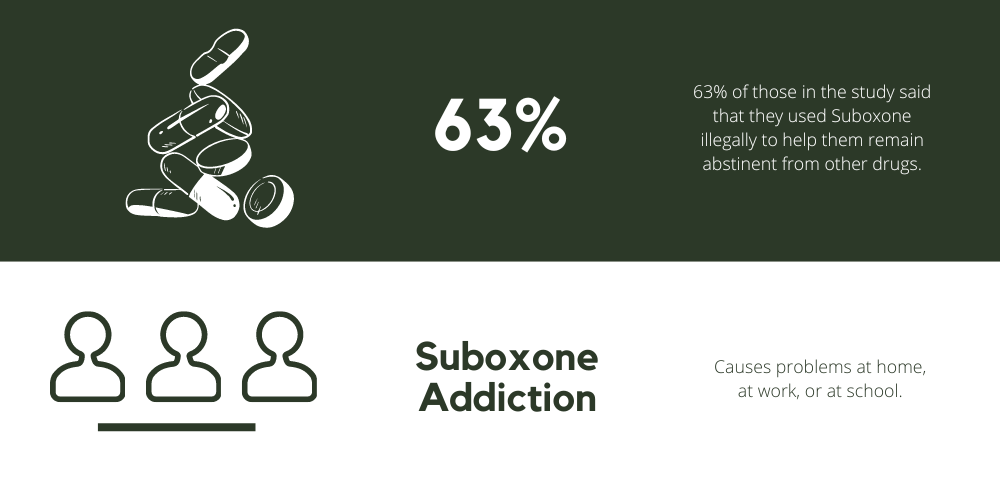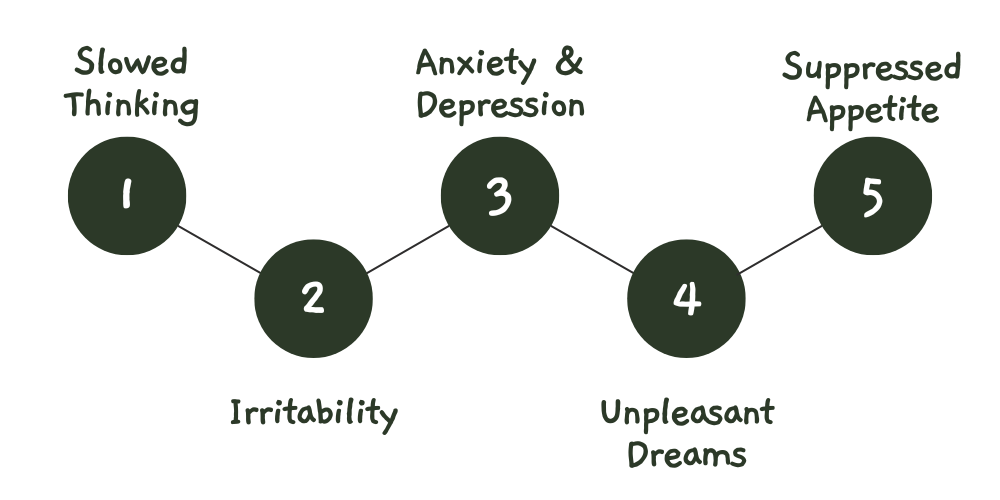
Suboxone Detox Orange County
Suboxone detox in Orange County helps individuals stop opioid use in a safe, structured setting. At Sullivan Recovery, we support patients through withdrawal, therapy, and outpatient rehab services. Our goal is long-term recovery from opioid use disorder with medication and behavioral support.
Suboxone plays a critical role in reducing cravings and blocking the effects of opioids like oxycodone, morphine, and fentanyl. Our team monitors patient health during detox, addressing symptoms like anxiety, insomnia, and nausea while adjusting dose levels to fit individual needs. This process not only stabilizes brain function but also lowers the risk of opioid overdose and relapse, especially when paired with mental health care and behavior-focused therapy.
Suboxone is a combination of buprenorphine and naloxone used to treat opioid addiction. Buprenorphine helps reduce cravings and withdrawal symptoms, while naloxone blocks the euphoric effects of opioids. It is widely used in detox and outpatient rehab to support sobriety and reduce the risk of relapse.
The medication is effective for treating dependence on substances like heroin, fentanyl, and prescription painkillers. Unlike full agonists such as methadone, Suboxone partially activates opioid receptors, which helps minimize the risk of euphoria and abuse. This makes it a safer option for outpatient detox and long-term recovery, especially for patients with a history of substance abuse or dual diagnosis involving mental health conditions.
People addicted to opioids such as fentanyl, morphine, oxycodone, and heroin may struggle to quit on their own. Sudden withdrawal can lead to nausea, headache, fatigue, insomnia, and anxiety. Suboxone detox helps patients stop using opioids while minimizing these symptoms in a controlled setting.
Without medical detox, withdrawal symptoms can overwhelm the brain’s ability to regulate behavior and impulse control. Pain, cravings, and emotional instability often lead to relapse or opioid overdose. Suboxone detox at Sullivan Recovery offers a medically managed solution, where the patient’s dose is carefully adjusted to reduce risk while improving physical and mental health outcomes.

Opioid use disorder is a growing crisis in Orange County. According to the Orange County Health Care Agency, opioid-related overdose deaths increased by 82% between 2019 and 2021. Fentanyl is involved in most of these deaths, contributing to over 700 fatalities in 2021 alone.
Local data shows rising abuse of synthetic opioids and increased emergency room visits linked to opioid overdose, benzodiazepine misuse, and alcohol-related interactions. In Mission Viejo and surrounding communities, the demand for detox and rehab centers continues to grow as patients seek care for symptoms ranging from euphoria-seeking behavior to long-term substance dependency. Suboxone detox programs are a critical line of defense in this public health emergency.
Suboxone, methadone, and naltrexone are common medications used in opioid detox and rehab. Methadone is a full opioid agonist and is often used in inpatient settings. Naltrexone blocks opioid receptors and is used to prevent relapse after detox.
Each medication has a place in addiction treatment, but Suboxone is often preferred in outpatient settings due to its reduced risk of overdose and better safety profile. Methadone can produce euphoria and is harder to manage without 24/7 supervision. Naltrexone has no opioid activity but may not reduce cravings during early recovery. At Sullivan Recovery, Suboxone allows patients to remain engaged in therapy while managing behavior, cravings, and co-occurring mental health symptoms like anxiety or depression.
At Sullivan Recovery in Mission Viejo, our outpatient Suboxone detox program allows patients to begin recovery without leaving home. Patients receive medical oversight, therapy, and behavior monitoring while continuing their daily routines. This flexible model reduces cost and increases access to care.
Outpatient Suboxone detox is especially helpful for individuals balancing family, work, or school responsibilities while facing opioid use disorder. We integrate support for dual diagnosis conditions, such as those involving mental health and substance abuse. Rehab services also help manage post-acute symptoms like fatigue, insomnia, and cravings. Our clinical team works with each patient to monitor medication response, adjust Suboxone dose, and build long-term relapse prevention plans through therapy and structured outpatient rehab.
Suboxone detox can ease symptoms such as anxiety, nausea, pain, and insomnia. Our staff monitors each patient’s dose and health status to avoid complications. Side effects like headache and fatigue are common during early withdrawal, but we address them with medical and emotional support.
In cases where patients have been using benzodiazepine or alcohol along with opioids, detox becomes more complex. Dual diagnosis care is essential in these situations to manage both substance abuse and underlying mental health disorders.

Patients at Sullivan Recovery begin detox with a full health assessment and urine drug screening. Our medical team determines the starting suboxone dose and adjusts it based on response. Over time, doses are lowered gradually to avoid shock to the brain and body.
During detox, patients attend individual and group therapy. Topics include behavior change, triggers, stress management, and coping skills. Therapy helps prevent relapse and prepares patients for long-term sobriety.
Suboxone detox is part of a larger treatment model called medication-assisted treatment (MAT). MAT combines medication with therapy to help people manage cravings and stabilize their behavior. It is one of the most effective methods for treating opioid addiction.
Studies show MAT reduces opioid use, criminal behavior, and overdose risk. Patients on MAT are more likely to stay in treatment and less likely to relapse. At Sullivan Recovery, we use MAT to support both detox and continued rehab.
Many people with opioid addiction also suffer from mental health conditions like anxiety or depression. This is known as dual diagnosis. Treating only the addiction without addressing mental health often leads to relapse.
Sullivan Recovery offers integrated care for substance use and mental health. We screen all patients for conditions like PTSD, mood disorders, and trauma. Therapy addresses both addiction behavior and emotional health.
Fentanyl is 50 to 100 times stronger than morphine. Patients addicted to fentanyl often require careful detox planning due to its long half-life and powerful effects on the brain. Suboxone is effective for fentanyl detox but must be used carefully to avoid precipitated withdrawal.
We also provide detox services for other opioids including oxycodone, heroin, and prescription pain medications. Each patient’s history and drug use patterns are evaluated before detox begins.
Most insurance plans in California cover suboxone detox and outpatient rehab. Sullivan Recovery accepts major PPO providers and can verify insurance benefits before treatment begins. Patients can contact our admissions team to check coverage.
Access to affordable care is a major barrier for many. We help remove that barrier by working directly with insurance companies and offering flexible scheduling to meet patient needs.
Detox is the first step, but ongoing care is essential. Our outpatient rehab program includes therapy, medication monitoring, support groups, and relapse prevention strategies. Patients attend multiple sessions each week to maintain progress and build healthy habits.
Behavioral therapy is a key part of rehab. It helps patients understand the link between emotions, triggers, and drug use. Over time, they build skills to manage cravings, avoid relapse, and improve overall health.
Sullivan Recovery is located in Mission Viejo and serves all of Orange County. Our team specializes in suboxone detox, outpatient rehab, dual diagnosis, and MAT. We treat addiction to fentanyl, morphine, oxycodone, alcohol, and benzodiazepine.
We take a patient-first approach. Each treatment plan is customized based on medical needs, substance use history, and mental health status. Our outpatient model allows for privacy, flexibility, and consistent support.
Opioid overdose can cause permanent brain damage or death. Naloxone is a medication that can reverse overdose symptoms if used quickly. We provide education and access to naloxone kits as part of our harm reduction services.
Most overdoses happen after a period of abstinence or relapse. This is why continuous support after detox is critical. Suboxone and MAT reduce overdose risk by stabilizing the patient and blocking euphoric effects from opioids.
If you or someone you care about is struggling with opioid addiction, suboxone detox can help. Sullivan Recovery provides expert medical support, therapy, and outpatient rehab in Orange County.
Call us today or fill out our confidential contact form to speak with a specialist. We’re ready to help you take the first step toward recovery, health, and lasting change.
Yes, Suboxone detox can be safe for individuals managing chronic pain, but it requires close medical supervision. Buprenorphine in Suboxone has partial pain-relieving properties, which can help reduce opioid dependence while still offering some relief. At Sullivan Recovery, we assess each patient’s pain level and substance history before creating a detox plan that supports both addiction recovery and physical health.
Caution is needed when using Suboxone alongside benzodiazepines or alcohol due to the risk of respiratory depression. Our clinical team at Sullivan Recovery provides dual diagnosis evaluations to determine whether Suboxone detox is appropriate. If needed, we offer alternative strategies to manage opioid use disorder while addressing polydrug abuse safely.
Most patients benefit from at least 8 to 12 weeks of outpatient rehab after completing Suboxone detox. This phase includes therapy, behavior tracking, relapse prevention planning, and mental health support. Duration depends on the severity of substance abuse, co-occurring disorders, and patient goals for recovery.
If relapse occurs, we reassess your treatment plan and may restart or adjust your Suboxone dose. Relapse is common in opioid recovery and does not mean failure. Sullivan Recovery offers ongoing support through outpatient rehab, therapy, and medication management to help patients regain control and continue progress.
We are available around the clock to assist you, every day of the year.
© 2024 Sullivan Recovery. All rights reserved.